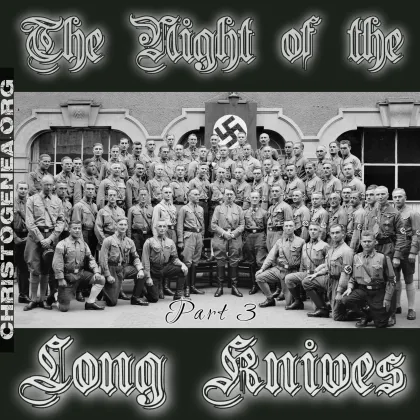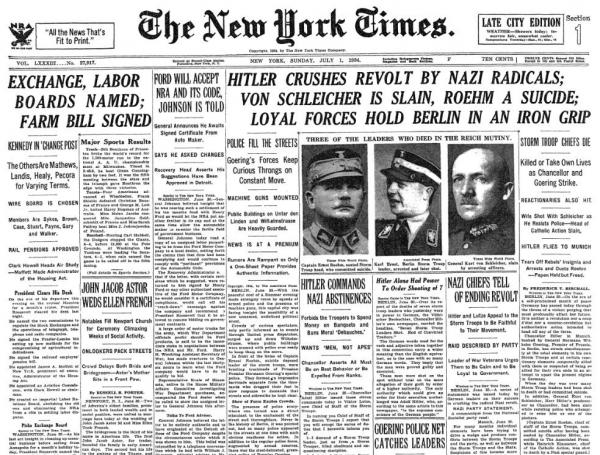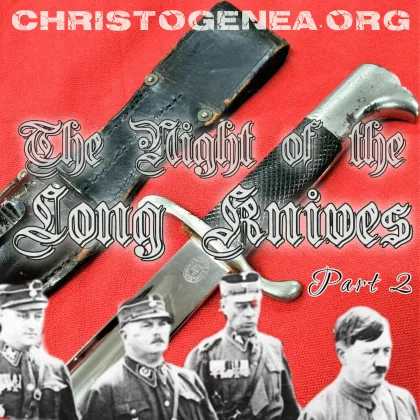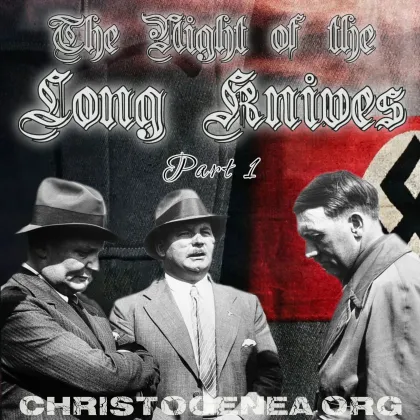The Night of the Long Knives, Part 3

The Night of the Long Knives, Part 3
Here we continue and conclude our series of articles from The Barnes Review describing the event which is known as The Night of the Long Knives. When we began to present this series, we actually ordered and have just received a copy of the book from which these articles were taken, which is Hitler, Democrat, by former Waffen SS General Leon Degrelle. The six articles we are presenting in this series were actually taken from chapters 38 through 43 of that book, and they were reprinted in Barnes Review issues through September-October, 2002. As we have already discussed, Degrelle was a Belgian journalist, politician and founder of the Rexist Party, and then later a National Socialist and Waffen SS volunteer who during the War had worked his way up the ranks from Private to Colonel. Then he was evidently promoted to General as the war came to its unfortunate end. Last week we presented articles titled The Röhm Crisis Worsens and Last Millimeters of the Fuse, which continued to describe the events leading up to the famous National Socialist purge, and which fully described its necessity, for the alternative was to send Germany down another path to civil war. This week, we shall present the next articles in the series, The Bloody End of Ernst Röhm: The Night of the Long Knives and then 38 Million Germans Make Their Voices Heard: A Landslide Victory for Adolf Hitler, which gives us an impression of how well the German people had thought of Adolf Hitler and the National Socialists only weeks after the purge.
Leon Degrelle describes Ernst Röhm’s political and economic philosophy in a manner that impels us to label him as a Marxist. It is our understanding that Adolf Hitler was absolutely ambivalent towards Marxism, and that his own political and economic philosophy, as they are described in Mein Kampf, were grounded in Christian principles and absolutely antithetical to Marxism. Furthermore, Adolf Hitler’s revolution was political, and ended as soon as the National Socialist German Worker’s Party came to power in 1933. But for Ernst Röhm, the revolution had only begun and needed to continue, ostensibly until he could fulfill his own desires to bring his own form of Bolshevism to Germany. But the trouble between the two men erupted over Röhm’s promotion of the Sturmabteilung, or SA, the party’s paramilitary organization, as a replacement for the German Wehrmacht – the regular army which Röhm sought to dismantle. It is obvious to us, and evidently became obvious to Hitler, that Röhm wanted the SA to replace the Wehrmacht so that he as its commander could supplant the NSDAP leadership and execute his continued revolution.











 Please click here for our mailing list sign-up page.
Please click here for our mailing list sign-up page.








Recent comments